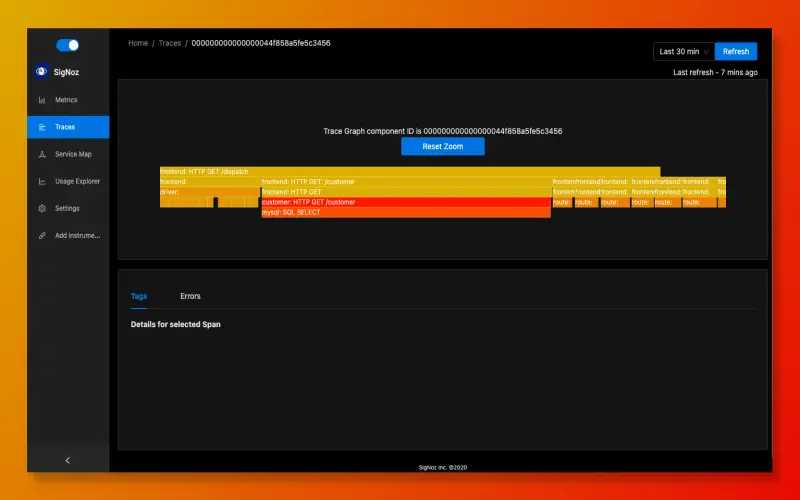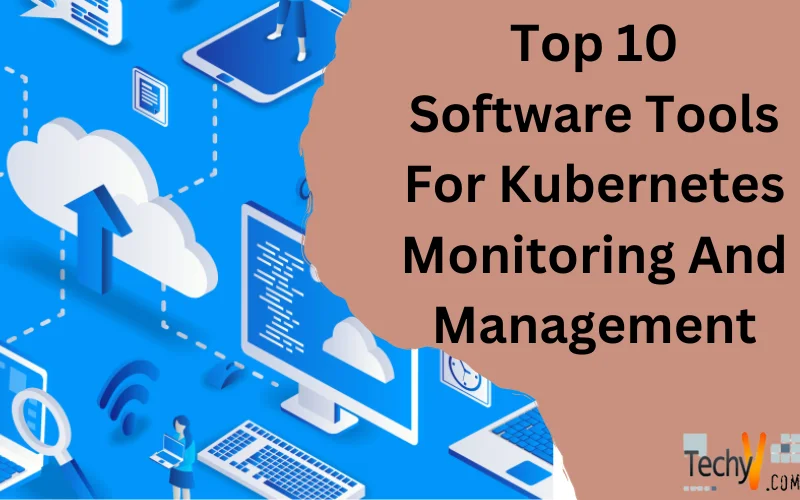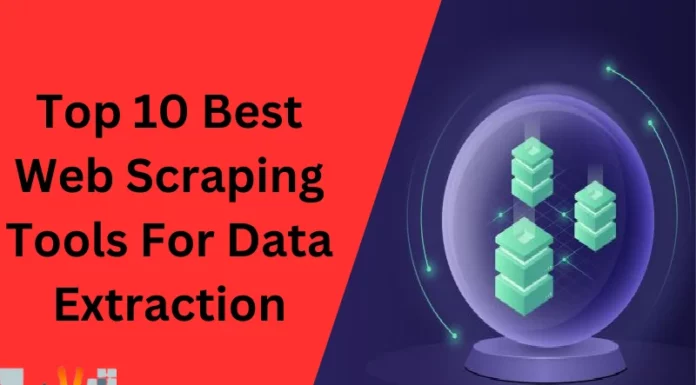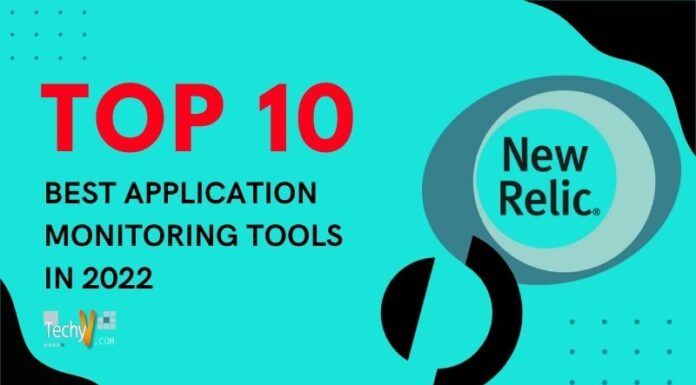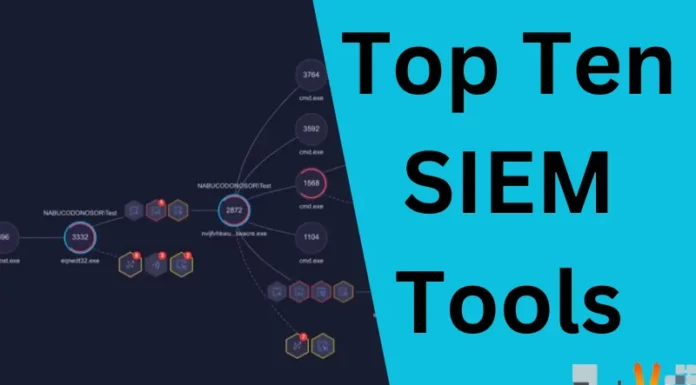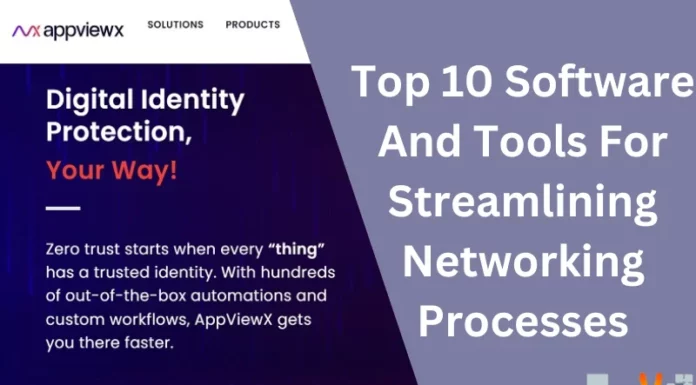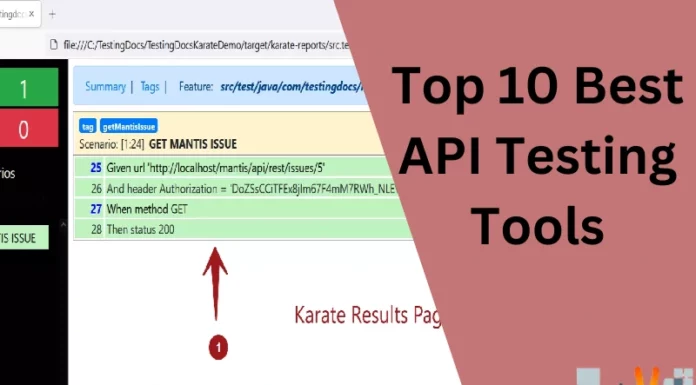Monitoring lets you pull numerical metrics from your apps and stuff, which you can check out later to see how things are going, you know? Logging helps developers debug their containers if something’s broken. Containers don’t stick around long, and neither do the logs. Tracing lets you debug services on a network and track down a request to find where the problem is. With microservices, when multiple services/containers hit each other up to get some business task done, you must have a good tracing solution. In this article, we will look at the Top 10 software tools that can help you in monitoring and management of Kubernetes and similar container deployment tools.
1. Kubernetes
Kubernetes, also known as K8s, is an open-source tool for orchestration and DevOps that helps developers automate the deployment, management, and scaling of containerized apps. It’s ideal for organizations trying to efficiently handle complex distributed apps on a large scale. Some of Kubernetes’ top features include automated rollouts and rollbacks, Storage orchestration, Service discovery and load balancing, Self-healing, Automatic bin packing, Batch execution, Secret and configuration management, and horizontal scaling. The container management tool means you don’t gotta modify apps using some unknown service discovery mechanism by giving Pods their IPs and each Pod one DNS name while balancing loads between them and if any containers fail, nodes die, etc., Kubernetes self-heals. Automatic bin packing is another highlight that saves resources and keeps availability up, and it can handle batch and CI workloads, plus replace containers if they go down.

2. Docker
Docker is a popular open-source container platform and DevOps tool. It assists developers with deploying, managing, and scaling apps inside containers. Well-known for scalability, portability, and isolation. Docker containers are standalone, lightweight, executable packages that give devs everything required to run apps – code, system tools/libraries, runtime, settings, etc. Devs can improve app quality and minimize errors using Docker’s steady dev and testing environment. Plus, they can scale up and down with no problem for apps with varying workloads.

3. Middleware
Middleware is a monitoring platform focused on complex, multi-layered apps that gives complete, visibility of the health and performance of containerized environment in real-time – it automatically finds and monitors newly added or removed containers, ensuring complete coverage, and it has a default dashboard with all essential metric configs so you can monitor Kubernetes and other containers.

4. Prometheus
Prometheus is the first tool that pops to mind when talking open source monitoring solutions – it’s very popular with devs and a CNCF project graduate focused on the monitoring aspect of SRE. Prometheus is an open-source tool developed by SoundCloud, and it makes it easier to extract numerical metrics from a metrics endpoint based on a time series. Its purpose was to keep an eye on extremely dynamic container environments. Prometheus has three parts: Prometheus server, Alertmanager, and exporters. Exporters are standalone, independent processes/containers that run on your target resource to generate and export metrics via an API.
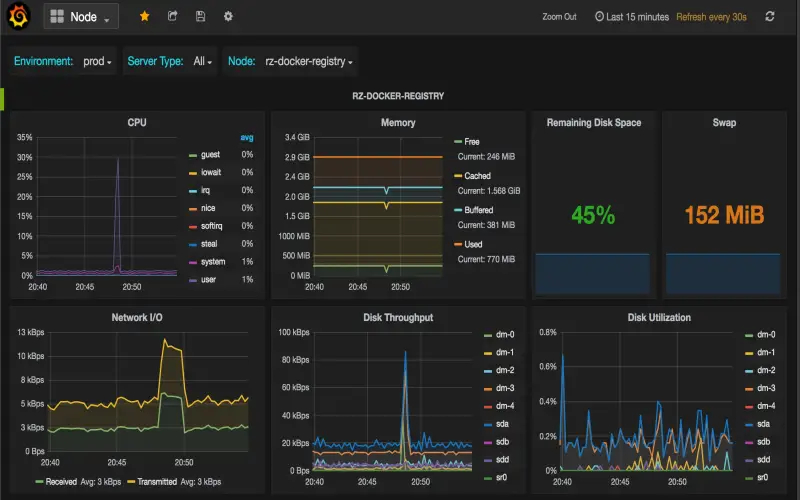
5. Grafana
Grafana is an open-source analytics and visualization suite for metrics. It lets you build custom dashboards using data from multiple sources like Prometheus, Elasticsearch, MySQL, Postgres, and Redis. Grafana also has its alerting system and role-based access control for software. Grafana is a well-known data visualization tool among Prometheus users for its ability to efficiently display the metrics kept within Prometheus. There are a ton of community and officially built custom dashboards available made from various data sources in Grafana, allowing users to set dashboards on their data and start monitoring easily.

6. Elastic Stack
Elastic Stack is a group of open-source stuff from Elastic to helps peeps search, examine, and visualize data in real-time from any source and any format. It was previously known as the ELK stack, where each letter stood for one of Elastic’s main products – Elasticsearch, Logstash, and Kibana. Elastic Stack provides monitoring and logging solutions using its big data database Elasticsearch.
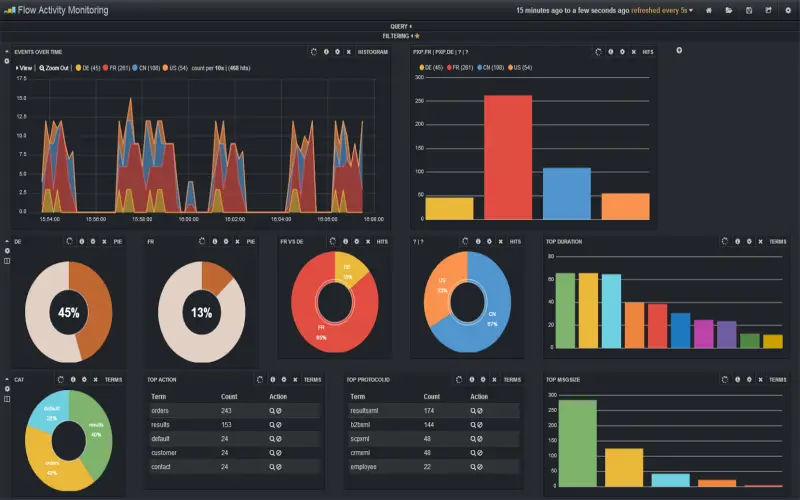
7. Sensu Go
Sensu Go is a telemetry and service health-checking solution for large-scale multi-cloud monitoring. It provides you with the ability to view servers, containers, apps, functions, services, and linked devices on any number of public or private clouds. Sensu can run side-by-side with Prometheus to get the best of both, or it can run natively without Prometheus. Sensu works best with Prometheus since exporting app-level metrics data to Prometheus requires you to load the Prometheus SDK into your app codebase and expose a metrics endpoint.
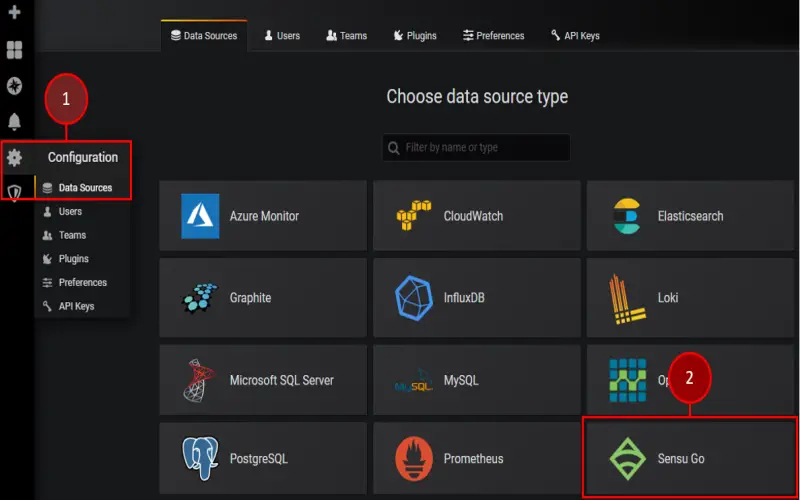
8. Sysdig Inspect
Sysdig’s two open-source products are Sysdig Inspect and Falco. We’ll focus on Inspect here, which keeps an eye on and records every container process that’s operating on your system and lets you drill into those processes for investigating stuff after incidents. It enables you to analyze your app performance, fix bugs, and keep an eye out for any processors that might be acting strangely. Furthermore, if your systems are breached, Sysdig allows you to understand how the breach happened and what data was taken.
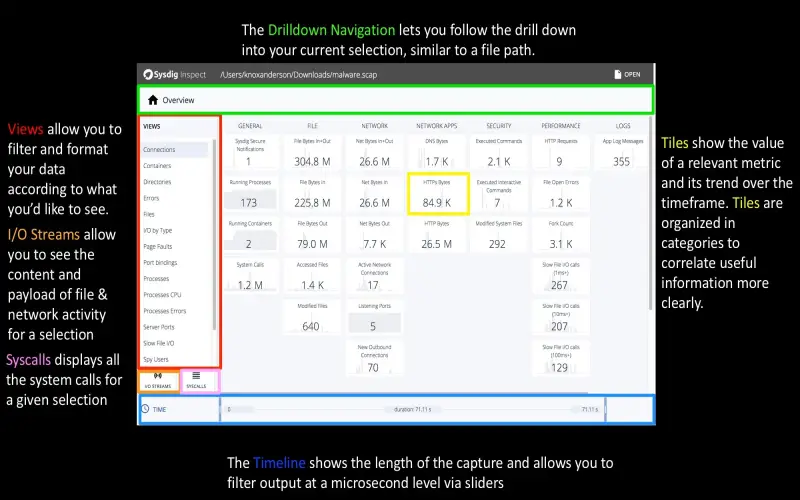
9. Jaeger
Jaeger is another end-to-end tracing distribution system that is open-sourced and made by Uber Engineering. It helps you monitor and troubleshoot transactions found in complex distributed systems. In a microservices architecture, the primary operational issues come under networking and observability. Failure in these systems occurs when requests move from service to service over the network while completing business transactions. That makes debugging the code and issue extremely difficult. Jaeger uses tracing to find the root cause of problems and provides analysis, performance, latency, optimization of network, and system transaction monitoring in distributed systems.
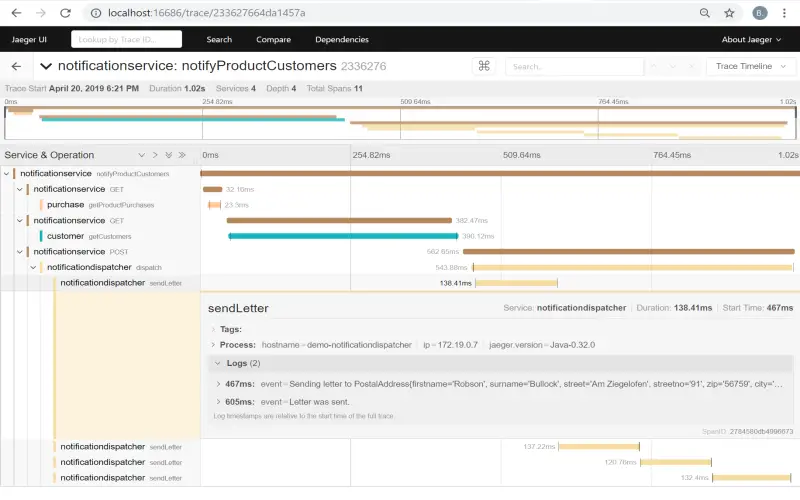
10. SigNoz
Last, but not least SigNoz is an open-source application designed for monitoring cloud-native applications built with architecture such as serverless and microservices. It comes with several features and a few of them are that SigNoz allows making relationships between metrics, logs, and traces which enables smooth transition and experience. It offers native support for OpenTelemetry which ensures integration and compatibility.
